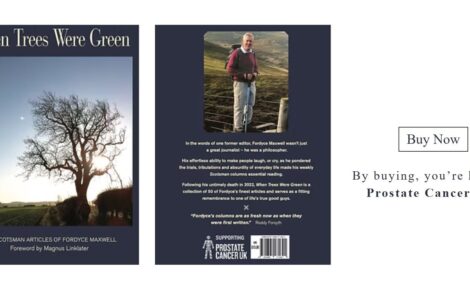



Is Eating Red and Processed Meat as Harmful as Some Say?
ANALYSIS - Warnings over the potential risks concerning the consumption of red meat and processed meats and cancer have been circulating for several years.The warnings have tended to come from vociferous campaign groups and committed organisations with a vested interest.
One of the leading organisations to speak out against red meat and warn of the risks of colon cancer through excessive consumption in the World Cancer Research Fund.
A report by the WCRF first published in 2007 and then updated in 2011 firmly warned of the dangers of cancer associated with red meat consumption.
The reports led to sensational headlines in the popular press and spawned a host of other studies that apparently emphasised the dangers.
Since then the WCRF has somewhat tempered its views, while still retaining the opinion that there is a strong link between red and processed meats and cancer.
Now the WCRF states: “To reduce your cancer risk, eat no more than 500g (cooked weight) per week of red meat, like beef, pork and lamb, and avoid processed meats such as ham, bacon, salami, hot dogs and some sausages.”
The organisation adds: “As a rough guide 500g of cooked red meat is the same as 700 to 750g of raw red meat. To help visualise how much this is, a medium portion of roast beef or pork is about 90g and a medium steak is about 145g.
“Although eating a lot of red meat is linked to bowel cancer, it is a good source of nutrients including protein, iron and zinc. The evidence shows that eating up to 500g (cooked weight) of red meat per week does not significantly raise cancer risk.
“Regularly eating more than this, however, does increase risk of bowel cancer.”
However, the reports produced nutritional recommendations that advise people to limit their intake of red and processed meats have now been brought into question.
A recent perspective paper, written by 23 scientists, published in the journal Meat Science underlined the uncertainties in the scientific evidence and points to further research needed to resolve these issues and improve the foundation for future recommendations on the intake of red meat.
The review discusses recent studies on associations between red and processed meat intake and cancer risk in humans and animals.
It says that in animals it is possible to promote cancer by giving the animals a chemical cancer challenge and a basic “standard” diet that is high in meat, but does not contain any ingredients that protect and can help the gut stay healthy.
This means no vegetables, no fibre, no milk or other sources of calcium.
In other words, the “standard” diet of the lab animals is not very comparable to that of humans.
The many differences between diets for humans and laboratory animals may explain why the results seem to differ, the scientists say.
In humans, the observed association between red and processed meat intake and cancer is relatively small in magnitude, but consistent, and may still present a serious public health impact.
The 23 researchers conclude that other foods, in cooperation with the bacteria that live in the gut, may protect the gut so any potential adverse effects of meat may become less pronounced or may even be fully prevented.
The team of scientists further concludes that science does not yet have a full understanding of how food that we eat affects our gut and our health.
To get a better grip on this complex issue, it is necessary that improved measures of how much meat people eat, the composition of the meat they eat, and how this affects the risk that cancer develops.
At the same time, efforts to make meat healthier in general need to continue, the scientists say.
The paper is published open access in Meat Science and is the result of an international workshop held in Oslo, Norway in November 2013, “How can we approach consensus on the healthiness of red meat?”
The international team of researchers was coordinated by the Norwegian University of Life Sciences, in connection with the international research programme ‘The Ecology of Food Perception’ at the Centre for Advanced Study at the Norwegian Academy of Science and Letters in Oslo.
TheCattleSite News Desk


